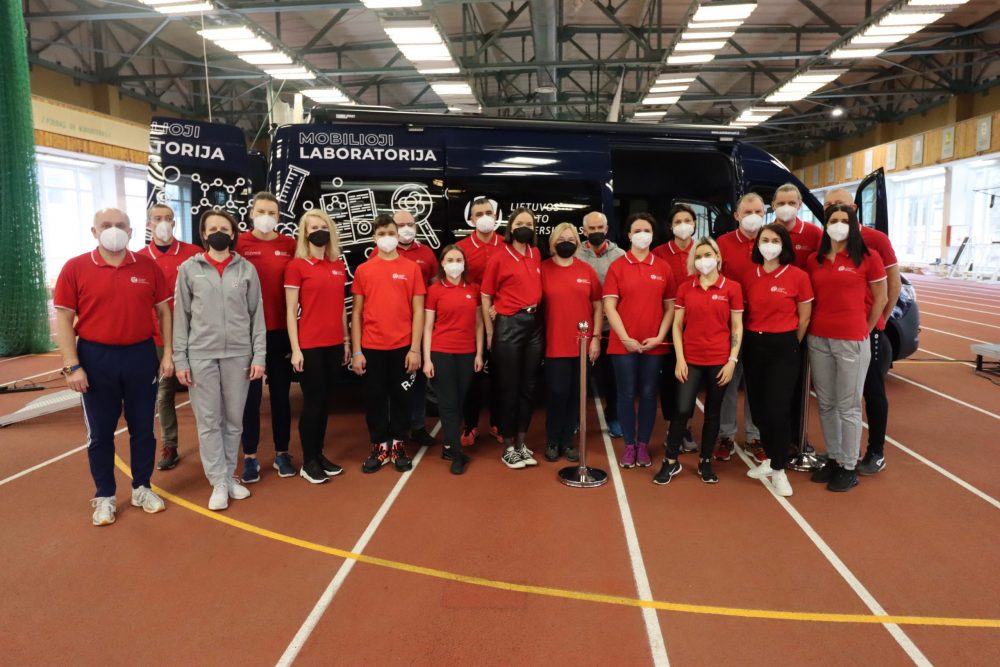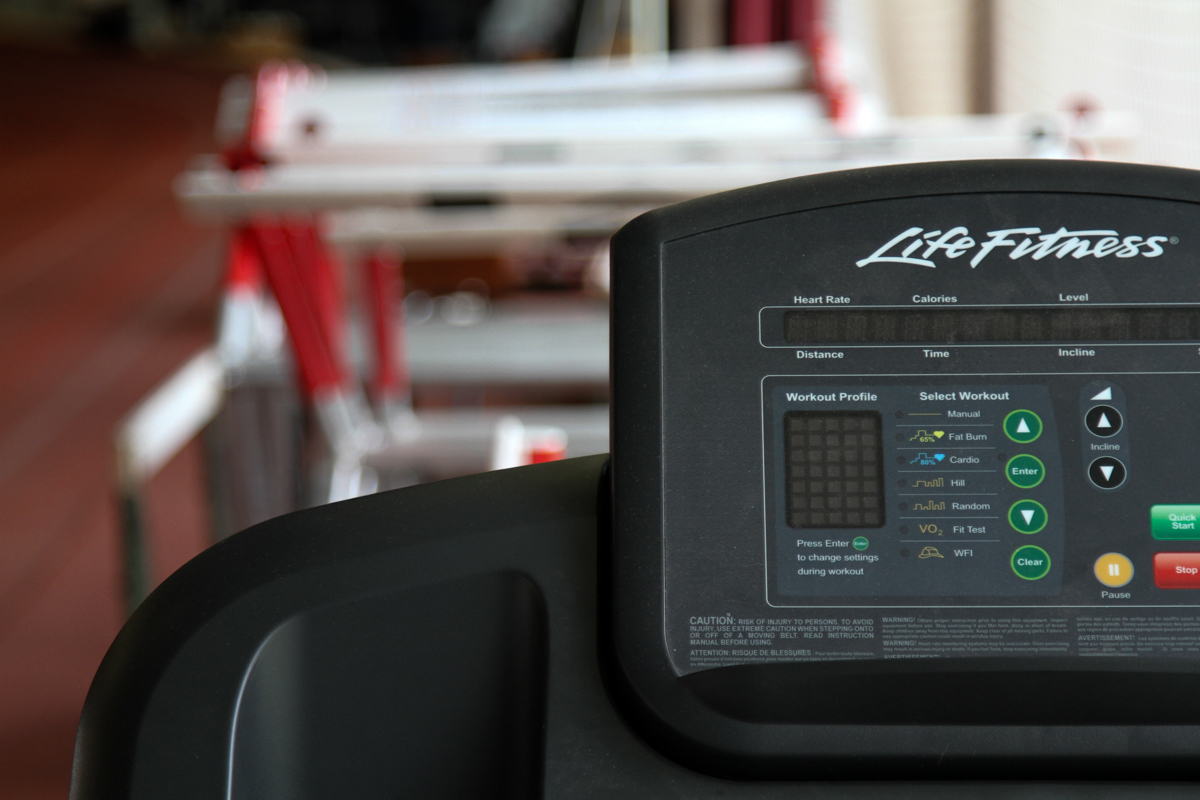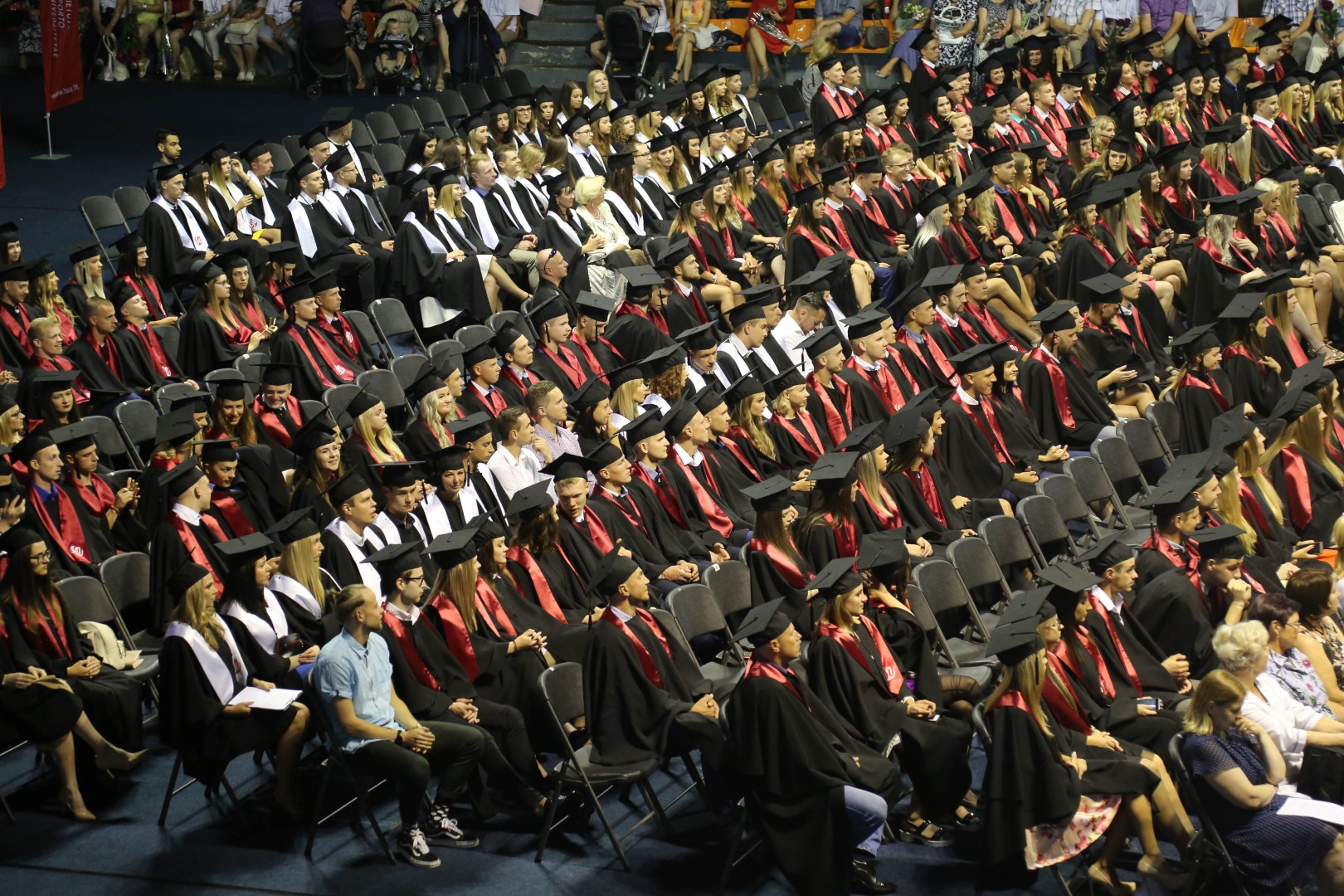The innovative mobile sports science laboratory, the only one of its kind in the country, was unveiled at the A. Stanislovaitis Indoor Athletics Arena of the Lithuanian Sports University (LSU).
It is planned that LSU scientists will visit various cities and villages, schools, sports federations, centers, and clubs across the country with the newest equipment.
“The work of the innovative mobile sports science laboratory is of great importance for sports science as a whole. It is an impulse to reach new heights, an opportunity to introduce the importance of science, and to provide modern services to society. Technology is very important in sports science. The researchers have had many discussions with our social partners, various federations. We have acquired the latest world-renowned equipment for sports science,” said LSU Rector and Professor Diana Rėklaitienė.
LSU’s mobile laboratory will help sports scientists evaluate the effectiveness of health promotion and coaching programs.
A team of 28 sports scientists will carry out research with 22 sets of scientific equipment. It is expected that the LSU team of professionals will be able to examine up to 40 people and provide detailed data in a few hours’ visit.
The unique presentation of the LSU mobile laboratory was also attended by the Lithuanian Minister of Education, Science and Sport Jurgita Šiugždinienė.
“We have been following the Beijing Winter Olympics closely over the past weeks. We understand that the contribution of sports scientists is crucial to athletes’ achievements. We are delighted that LSU scientists will be visiting the major cities and the regions. The data they will collect and the recommendations they will make will be relevant for all age groups,” said the Minister.
Professor Sigitas Kamandulis, the project manager of the mobile laboratory and the Director of the LSU Institute of Sports Science and Innovation, hopes that the laboratory will contribute to the further development of the country’s athletes and will not only help the Lithuanian Olympians, but also the representatives of team sports.
“We will not only increase cooperation between athletes and scientists but also improve business and scientific relations. We will develop and improve innovative products and technologies. Sports scientists will also help evaluate the effectiveness of health promotion and coaching programs. In addition, we will aim to collect as much data as possible on the physical condition of the Lithuanian people,” said the project leader of the mobile laboratory.
According to S. Kamandulis, the goal of LSU researchers is to use modern sports science equipment to visit Lithuanian cities and villages and study the athletes of schools, sports centers, clubs, and organizations.
LSU’s innovative mobile sports science laboratory started its tour of Lithuania in early February. The first research participants were students from Kaunas Gediminas Sports and Health Promotion Gymnasium, Usėnai Primary School, and Šilutė First Gymnasium.




